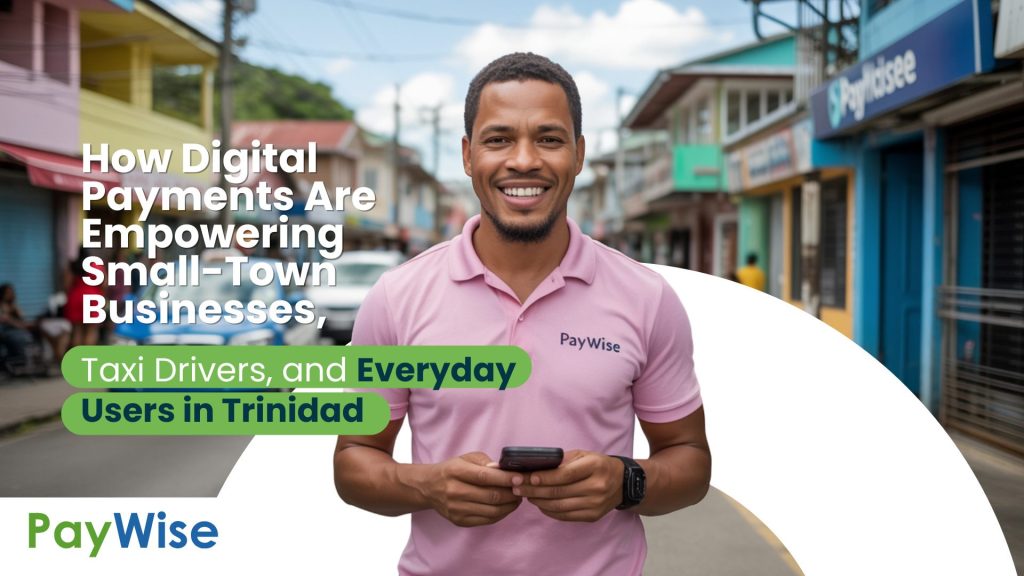In recent years, digital payments have transformed the way businesses, taxi drivers, and everyday people manage their finances. The adoption of platforms like PayWise is reshaping financial habits, making transactions faster, safer, and more inclusive. In Trinidad, these changes are not just about convenience — they’re about empowerment.
The Rise of Digital Payments in Small-Town Trinidad
For small-town business owners, digital payments are offering a lifeline. Take Mrs. Annette, the owner of a small bakery in San Fernando. She’s been running her business for over 15 years, but it wasn’t until she integrated PayWise into her payment system that she saw a real shift. “I used to rely on cash payments, and sometimes customers didn’t have the exact change,” says Annette. “But now, with PayWise, payments are instant and I don’t have to worry about keeping cash at hand.”
This shift is not just about adapting to technology; it’s about financial inclusion. Annette’s story is a glimpse into how digital money habits are opening new opportunities for people in areas that were once left behind by traditional banking systems.
Taxi Drivers: A New Way of Earning
Taxi drivers like Jason have also seen the benefits of embracing digital payments. Working the streets of Port of Spain, Jason found that many of his customers preferred the convenience of paying via apps like PayWise. “I used to struggle with cash payments, especially when people didn’t have small bills or coins,” he says. “Now, I can accept payments on the go, and the money gets to my account almost instantly.”
This convenience means taxi drivers no longer need to worry about having enough change or handling large sums of cash, creating a safer and more efficient way of earning. It also expands their customer base, especially as more people in Trinidad become comfortable with digital payments.
Everyday Users: A Changing Financial Landscape
For everyday users, the convenience of digital payments is clear. Maria, a teacher in Arima, shares how PayWise has simplified her life. “Before, I’d have to withdraw cash, carry it around, and risk losing it. Now, I just use my phone to pay for groceries, bills, and even my kids’ school fees. It’s so much easier,” she explains.
For people like Maria, digital payments are not just about technology. They represent a shift in financial habits that prioritize security and ease. For the first time, people from all walks of life can access the benefits of a cashless society without needing to rely on traditional banking infrastructure.
Financial Inclusion for All
At the heart of these changes is financial inclusion. PayWise has played a key role in making digital payments accessible to a wider audience. It’s not just for tech-savvy individuals in big cities, but for those in small towns and rural areas who may have never had access to digital banking before.
By offering easy-to-use digital solutions, PayWise is helping to bridge the gap between the “banked” and the “unbanked,” ensuring that no one is left behind. As more small-town businesses, taxi drivers, and everyday users embrace digital payments, they’re contributing to a larger movement of financial empowerment.
The Future of Digital Payments in Trinidad
The stories of people like Annette, Jason, and Maria show that digital payments aren’t just about technology. They’re about changing the way people manage their money, creating more inclusive financial habits, and empowering individuals across Trinidad.
As digital payment solutions like PayWise continue to grow, they will only continue to shape the financial landscape of Trinidad, offering more opportunities for small businesses, service providers, and everyday people to thrive in the digital age
